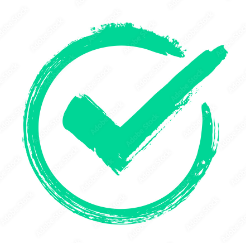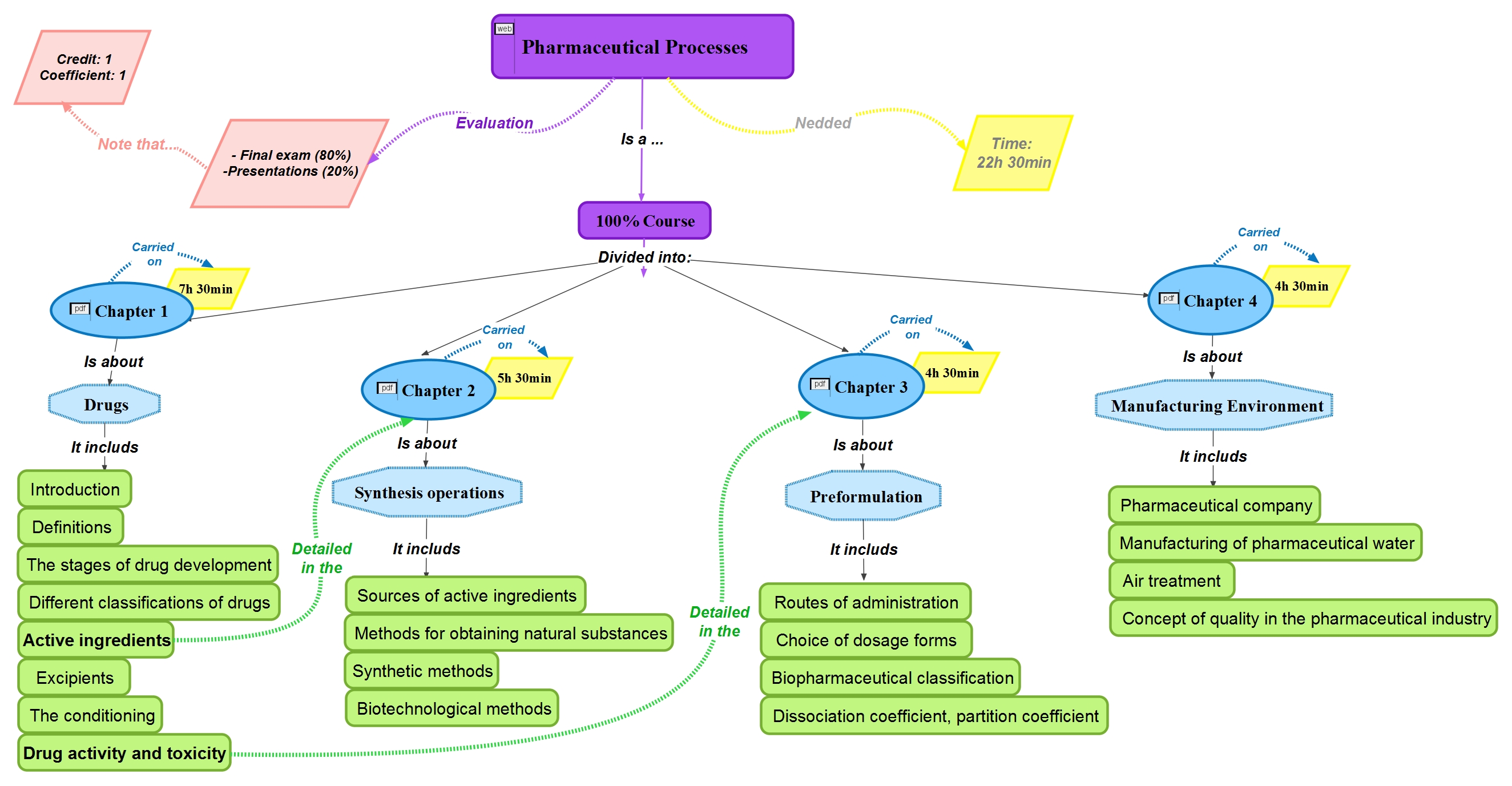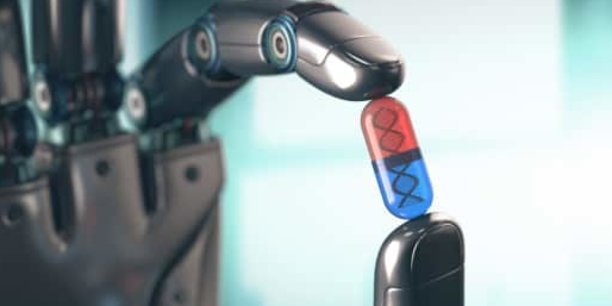Aperçu des sections
- Pharmaceutical Processes
- Contact form
Contact form
Institute: Science and Technology
Department: Process Engineering.
Target public: Third year Process Engineering
Fields of Specialization: Polymers
Course title: Pharmaceutical Processes
Credit: 1
Coefficient: 1
Duration: 15 weeks
Weekly timetable: 1h 30 min of course
Place of teaching: classroom 3
Teacher: MAYOUF Imane
Contact: mayouf.i@centre-univ-mila.dz
Availability: every Monday from 12:30 until 14:00 in the teachers' room
Evaluation methods: A final exam 100%
Responses by e-mail: Do not hesitate to contact me I will respond as soon as possible.
- Target skills
Target skills
1- Introducing the basic notions on therapeutic molecule synthesis, treatment, purification, and formulation;
2- Developing the manufacturing of therapeutic medicines like the synthesis of active pharmaceutical ingredients (APIs);
3- Knowledge of the methode of API synthesis;
4- Analyse the properties of the obtained ''galenic formulation'' ;
5- Analyze the synthesis processes, treatment, and purification of therapeutic molecules;
6- Evaluate the strengths and weaknesses of different galenic formulations and their impact on therapeutic efficacy;
7- Design innovative galenic formulations that optimize therapeutic delivery and patient outcomes.
- Prerequisites
Prerequisites
In order to fully understand this course, the student must have:
- Prior knowledge of the basic concepts of general chemistry: chemical bonds, atoms, molecules, etc.
- Prior knowledge of the basic concepts of organic chemistry: nomenclatures, steriochemistry, elimination reactions, substitute reactions, solvation, preparation of molecules, etc.
- Preliminary notions on conventional extraction methods;
- Prerequisites test
Prerequisites test

If the student has failed in obtaining 50% or more in the prerequisite tests, he must visit the following references to improve his basic knowledge and ameliorate his background in order to fully understand the rest of the course:
Book1: Essential of Organic Chemistry, for students of Pharmacy, Medicinal chemistry and Biological Chemistry.
Book2: Extraction Techniaues in Analytical Sciences.
- Direct chat
Direct chat
Hello Dear students;
I'll wait for you every week after the course to answer your questions and to enrich the discussions.
- Detailed contents
Detailed contents
This course is devided into four chapters, as represented in the mental map

This video explain the whole module
- Chapter I. From drugs to synthetic medicines…
Chapter I. From drugs to synthetic medicines…
By the end of this chapter; students will be able to:
- Recall the origin of old medicines and their historical development;
- Explain the synthesis, treatment, and purification of therapeutic molecules in a descriptive manner.
- Apply knowledge of synthesis processes, treatment, and purification to solve problems related to the development of therapeutic molecules.
- Examine formulation processes and technologies to evaluate their effectiveness and identify areas for improvement.
- Evaluate the strengths and weaknesses of different galenic formulations in terms of drug delivery and patient compliance.
- Design innovative galenic formulations for optimal therapeutic delivery, targeting specific patient needs or disease conditions.Hello Dear Students!
This space is for you, so that you can express yourself, discuss and exchange ideas and informations about the first chapter.
- Chapter II. Synthesis operations
Chapter II. Synthesis operations

By the end of this chapter; students will be able to:
- Understand the need for more potent and efficient APIs in the pharmaceutical industry.
- Recognize the factors contributing to the increased demand for new drugs.
- Identify different sources of active ingredients used in drug synthesis.
- Analyze the advantages and limitations of different methods for obtaining natural substances.
- Compare classical extraction techniques with modern, environmentally friendly extraction approaches.
- Assess the impact of solvent choice on the extraction of bioactive compounds.
- Formulate guidelines for the extraction of bioactive compounds from herbal medicinal plants using green extraction methods.Hello Dear Students!
This space is for you, so that you can express yourself, discuss and exchange ideas and informations about the seconde chapter.
- It's almost done!
- General references - Chapter I
- General references - Chapter II
- Give your opinion
- Section 13
- Section 14

